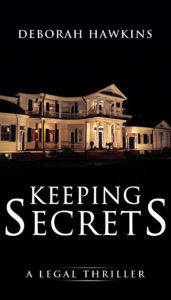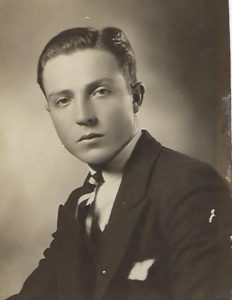Chaptet Two, Keeping Secrets, A Legal Thriller
CHAPTER TWO
Tuesday, January 3, 2017, Sussex State Prison, Sussex, Virginia
Tom Brower’s office was too warm, but Brendan didn’t care. The walk from his car to the prison entrance had been excruciating in the cold. Every breath had felt as if he was sucking needles into his lungs.
“Coffee?” Tom filled a styrofoam cup from the Mr. Coffee on the table by the door in his gray, government-issue office and handed it to him without waiting for an answer. He was the third warden Brendan had dealt with since taking over Ed’s case in 1986. He’d held the job for going on ten years.
Tom filled his own cup and sat down behind his big steel desk, littered with stacks of folders. “This is not the way I wanted to start the new year,” he said. “But that’s not news to you. I’ve never had to execute someone whom I’m certain is innocent. Can’t you get a stay?”
“I’ve got associates working round the clock. I called in the team yesterday morning as soon as I got the warrant. We’ve got sixty days. We’ll spend every minute trying to stop it. But you know that.”
Tom sipped his coffee, made a face, and put the cup down on his desk. “Don’t drink it. My secretary can’t count coffee measures. Ed doesn’t know yet, does he?”
Brendan shook his head. “That’s why I’m here.”
“Does he even suspect?”
“I don’t know. We’ve always talked about what we’re going to try next. The last time I was here, we’d lost that habeas writ before the Fourth Circuit up in Richmond.”
“That was new evidence, wasn’t it?”
Brendan sighed. “That’s right. The two witnesses who testified that Ed was having an affair with their roommate admitted that they had lied under oath. They had no knowledge of any affair. It was an important change in their testimony, but the court of appeal didn’t see it as significant.”
He remembered Judge Boyce, the lead judge on the panel in the Fourth Circuit, looking down at him from the bench and shaking his head. “I understand that these women have changed their stories. But I don’t see how that helps your client. The one who told the dean of the law school that your client was having an affair with her and wanted to marry her has never changed her testimony. There was ample evidence of motive, Mr. Murphy. Your client was unhappy with his wife, and he didn’t want the trouble and expense of a divorce, so he killed her.”
Allison Byrd. She’d testified at Ed’s first trial and then disappeared. Gordon had read her very damning testimony from that first trial to the jury in Ed’s third trial as Brendan had watched her claims sway all twelve jurors in the state’s direction. But she had been lying. There had been no affair. There had been no promise to do away with Anne, whom Ed still loved more than life itself. The dean had reprimanded Ed based on innuendo, hearsay, and gossip. Allison Byrd’s lies had put Ed on death row.
“What about a pardon from the governor or commutation of his death sentence to life without parole?” Tom asked.
“We’ve tried, over and over again. Anne’s family keeps buying the governor’s office to make sure that doesn’t happen.”
“Governor Reynolds might listen, though. Ed’s done so much good here. He’s helped the other inmates with their cases. He’s even gotten a couple of death sentences changed to life without parole. ”
“That’s the irony,” Brendan agreed. “He’s been able to save others but not himself.”
“I don’t get that.” The warden frowned.
“It’s the Fairfaxes again. Gordon’s right at retirement age, but he won’t step down because he’s constantly afraid we’ll get another reversal and another Commonwealth’s Attorney will let Ed plead to manslaughter for time served. That would have happened after the second reversal if Gordon hadn’t been the attorney on the file.”
“God, how I hate Gordon Fairfax, then. He’s putting me in an impossible position.”
“I know. He’s stepped way over the line between professional and personal. He called me yesterday to gloat. I didn’t give him a polite response.”
Tom looked out of the window beside his desk and studied the frozen landscape for a few seconds. Then he asked, “Does Ed’s son know?”
Brendan shook his head. “I’m going to tell him as soon as I’ve told Ed. Father Jim is on his way down from Richmond now to be with Ed after I’ve told him. We agreed that I should spend some time alone with him first, and then Jim should be with him.”
Tom looked relieved at the mention of Father James Lamb, the priest at St. Stephen’s in Richmond, who had been coming to see Edward Carter since Brendan took over his case. “I’m relieved to hear that.”
“You’re thinking suicide watch,” Brendan said.
“It’s required. You know that.”
“How long before you take him down to Greensville?”
“Not until a few days before the execution. He’ll still be here for most of his remaining time.”
Brendan studied the icy world that had caught Tom’s attention earlier. His eyes fixed on a puddle in the parking lot that was beginning to melt in the cold winter sun.
Why take lives, he wondered, when trials were such highly imperfect mechanisms to determine the truth? He thought of Emma’s steady dark eyes as he summoned his courage for what he knew he had to do. Medicine more often than law saves lives. At that minute, he wished he’d never made his way from his parents’ farm near Blacksburg to Virginia Tech and then to the University of Virginia Law School.
He felt Tom watching him and brought his gaze back from the melting puddle. “This isn’t going to get any easier no matter how long I sit here. It’s time to go see Ed.”
To see what happens next, click on the image below!













